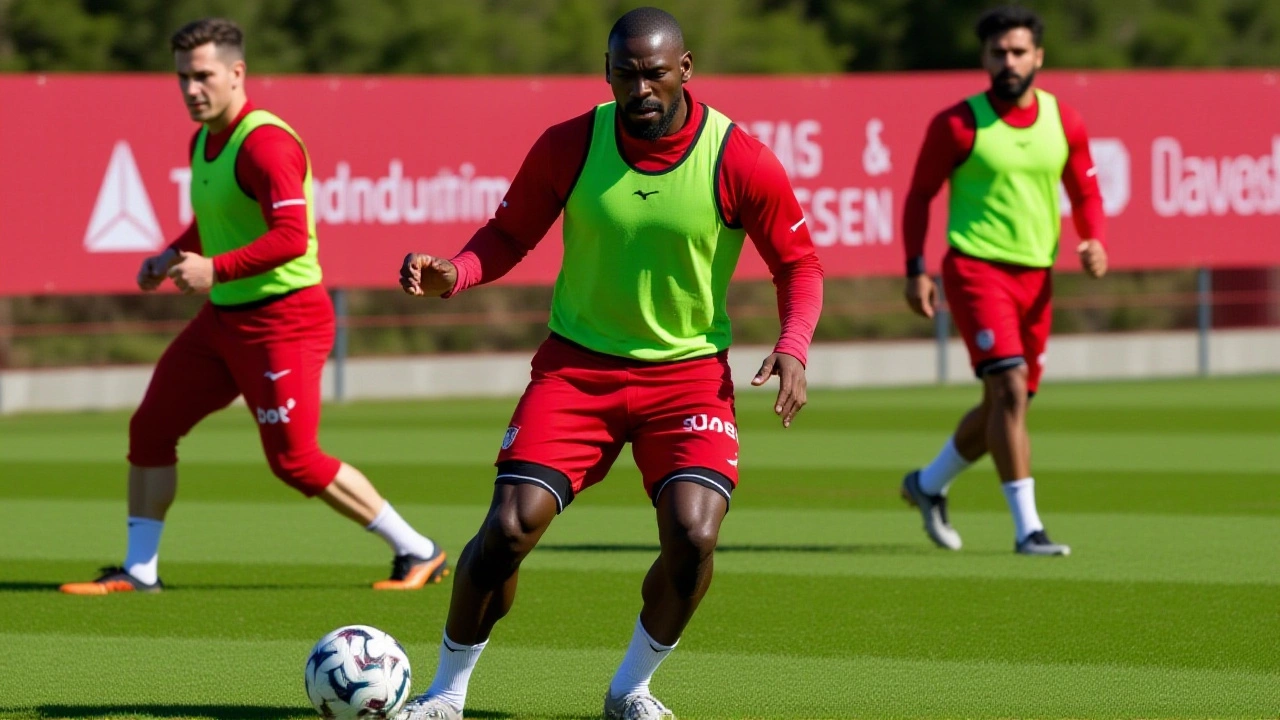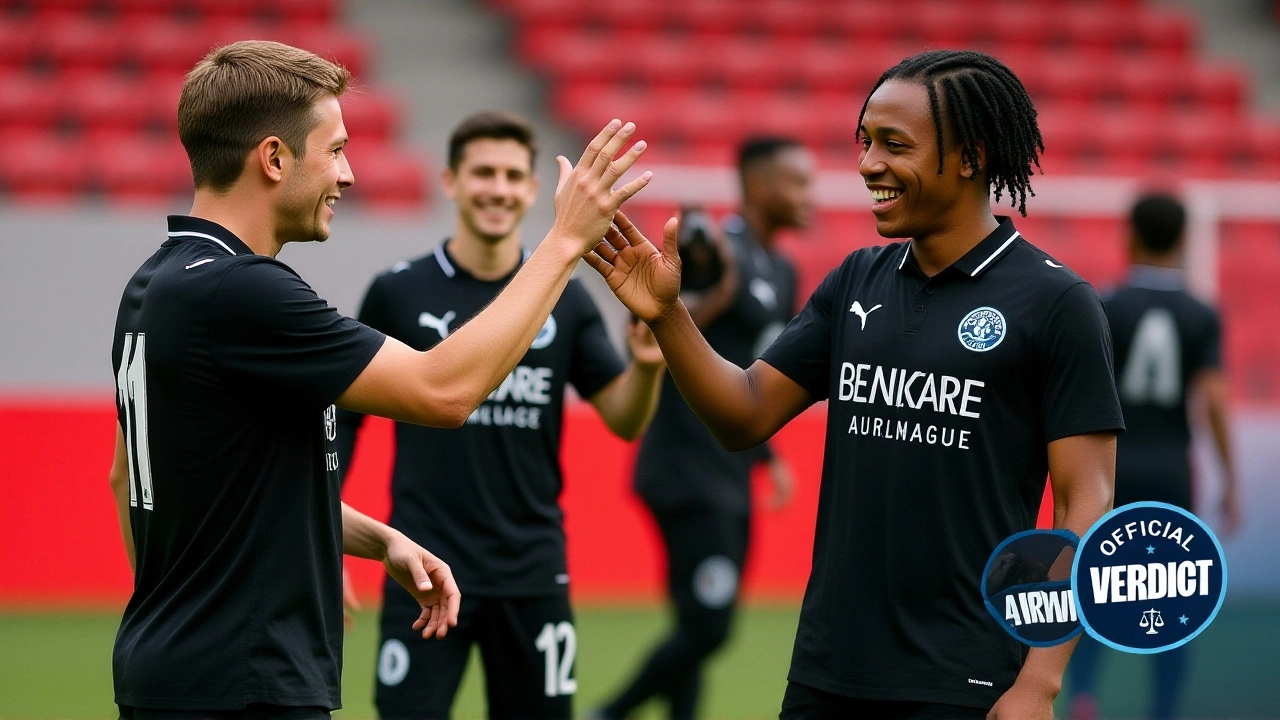Paul Pogba Makes Emotional Return for Monaco After 18-Month Doping Ban

When Paul Pogba stepped onto Roazhon Park’s pitch in the 85th minute on November 22, 2025, the standing ovation wasn’t just for a comeback—it was for survival. The 32-year-old French midfielder, once one of the most expensive players in history, had returned to professional football after an 18-month ban for a banned substance he insists he never knowingly took. His debut came in a 4-1 loss to Stade Rennais FC, but the scoreline didn’t matter. What mattered was the crowd rising, the tears in his eyes, and the quiet determination in his voice afterward: "I never imagined that would happen."
A Comeback Built on Denial
Pogba’s fall from grace began on August 20, 2023, after a routine test following Juventus Football Club S.p.A.’s match against Udinese Calcio S.p.A. revealed non-endogenous testosterone. The substance? Dehydroepiandrosterone (DHEA), a precursor that boosts testosterone levels and is banned by WADA. The initial ruling on February 29, 2024, by the Italian Anti-Doping National Tribunal was a four-year suspension. Pogba didn’t appeal for leniency—he appealed for justice. And on October 4, 2024, the Court of Arbitration for Sport in Lausanne, Switzerland, reduced the ban to 18 months, citing insufficient evidence that Pogba intentionally ingested the substance."I believed in myself," he told reporters after the match. "I knew I had done nothing wrong. And if you believe that, you never lose hope."
The Long Road Back
His release from Juventus came on November 30, 2024, after a mutual termination of his contract. He signed with AS Monaco FC on a free transfer in June 2025, a club that saw potential beyond the scandal. Monaco’s decision was bold: they didn’t just want a name. They wanted a fighter.But the comeback wasn’t smooth. Pogba had been cleared to play in March 2025. He trained relentlessly through the summer. By October, he was ready—until a right ankle injury in training sidelined him again. The delay wasn’t just physical. It was psychological. Would fans still want him? Would his body hold up? Would the French national team ever call him back?
"If I don’t perform well at Monaco, I can forget about the French national team," he admitted. It’s a sobering truth. At 32, with younger midfielders like Aurélien Tchouaméni and Eduardo Camavinga rising, Pogba’s window is narrow. He knows this isn’t just about redemption—it’s about relevance.
The Monaco Moment
When he entered the match against Rennes, the 28,000 fans in the stands didn’t just cheer for a former star. They cheered for a man who’d been vilified, doubted, and nearly erased from the game he loved. He touched the ball 17 times in 15 minutes. He made one key pass, lost two duels, and looked every bit the player who once dominated midfield at Manchester United and Juventus. But more than stats, he radiated presence."It felt like coming home," he said. "Not just to football—but to myself."

What’s Next?
Pogba’s next two matches will define his next chapter. On November 26, he’ll face Pafos FC in the UEFA Champions League—a high-stakes European stage where even a single assist could reignite global interest. Then, on November 29, he’ll line up against Paris Saint-Germain FC at Stade Louis II in Monaco. That’s not just a league game—it’s a reckoning. PSG is where the French national team’s future is shaped. And if Pogba plays well, the call-up might not be a dream anymore.The Shadow of the Past
This isn’t the first time a superstar has returned from a doping ban. But Pogba’s case is different. He never admitted guilt. He never apologized. He didn’t fade into obscurity. He fought—through legal channels, through rehab, through silence. And now, he’s back on a pitch where the stakes are personal, not just professional.His journey from Manchester United, where he left under a cloud of contract disputes in 2012, to Juventus, where he returned in 2022, to Monaco, where he now seeks resurrection, tells a story of talent, trauma, and tenacity. The system punished him. The fans forgave him. And now, he has to prove he still belongs.
Frequently Asked Questions
Why was Paul Pogba’s ban reduced from four years to 18 months?
The Court of Arbitration for Sport reduced the ban after reviewing evidence that Pogba likely ingested DHEA through contaminated supplements, not intentional doping. The tribunal found no proof he knowingly violated anti-doping rules, and his cooperation during the investigation played a key role in the reduced penalty.
Can Pogba still play for the French national team?
Technically, yes—but only if he performs consistently at AS Monaco FC and regains full match fitness. The French Football Federation has not officially barred him, but with younger midfielders dominating the squad, Pogba must prove he’s still elite. A strong Champions League performance could change that.
What’s the significance of DHEA in doping cases?
DHEA is a hormone precursor that the body converts into testosterone and estrogen. While naturally occurring, synthetic or supplemental DHEA is banned because it can artificially boost performance. It’s commonly found in over-the-counter supplements, making accidental ingestion a frequent defense in doping cases—though proving it requires rigorous lab analysis.
How did AS Monaco FC benefit from signing Pogba after his ban?
Beyond the media buzz, Monaco gained a global marketing asset with massive social media reach and commercial appeal. Pogba’s return generated over 12 million views on official club content within 48 hours of his debut. His presence also boosts ticket sales and merchandise—especially with his upcoming match against Paris Saint-Germain FC.
Is this Pogba’s last chance at top-level football?
At 32, with a history of injuries and a doping cloud, it’s his last realistic shot at elite competition. If he doesn’t play 90 minutes regularly by January 2026, his career may shift to lower leagues or coaching. But if he thrives at Monaco, even a brief resurgence could extend his playing days—and perhaps even earn him a World Cup farewell in 2026.
What role did the Court of Arbitration for Sport play in this case?
The Court of Arbitration for Sport acted as the final arbiter, overturning the Italian tribunal’s four-year ban after determining the evidence didn’t meet the threshold for intentional doping. CAS is the highest authority in global sports law, and its ruling set a precedent for cases involving trace contaminants in supplements, emphasizing intent over outcome.